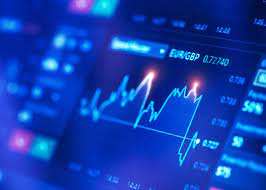
What to Look for in a Good Forex Trading Account
The world of Forex trading is fast-paced, exciting, and loaded with opportunities for savvy traders. But for those just starting out, the process of choosing a broker can be daunting. There are dozens of brokers out there, each with their own unique advantages and disadvantages. In this article, we’ll take a detailed look at the different types of Forex broker available, and help you decide which one is right for your trading needs.
1. Full-service brokers – Full-service brokers offer a wide range of services to their clients, including market research, investment advice, and personalized trading strategies. For traders who are new to Forex, a full-service broker can be an invaluable resource. However, these brokers often charge higher fees, which can be a downside for some traders. It’s also worth noting that many full-service brokers require a minimum deposit to start trading.
2. Discount brokers – As the name suggests, discount brokers offer lower trading fees than full-service brokers. This can be a good option for more experienced traders who don’t need the same level of support and guidance as beginners. However, discount brokers typically offer fewer services than full-service brokers. This means you’ll need to do more research and analysis on your own to make informed trades.
3. ECN brokers – ECN (Electronic Communication Network) brokers are a newer type of broker that has become increasingly popular in recent years. These brokers offer direct access to the interbank market, which allows traders to trade with other market participants instead of just the broker. This can result in tighter spreads and faster execution times, but ECN brokers typically charge a commission for their services.
4. Market maker brokers – Market maker brokers are the most common type of Forex broker. They act as the counterparty to their clients’ trades, meaning that when you buy or sell a currency pair, you’re actually entering into a contract with the broker, not the market itself. While this can result in quicker execution times and lower trading fees, some traders worry that market maker brokers may have a conflict of interest since they profit from their clients’ losses.
5. NDD brokers – NDD (No Dealing Desk) brokers are similar to ECN brokers in that they provide direct access to the interbank market. However, NDD brokers may also use other sources of liquidity, such as other banks or even other brokers. This can result in even tighter spreads and faster execution times than ECN brokers, but NDD brokers may also charge commission.
Choosing the right Forex broker can mean the difference between success and failure in the world of trading. However, with so many different types of brokers out there, it can be difficult to know where to start. By understanding the different options available, you can make an informed decision about which type of broker is right for your needs. Whether you’re a beginner or an experienced trader, there’s a broker out there that can help you reach your trading goals. So take your time, do your research, and choose wisely.